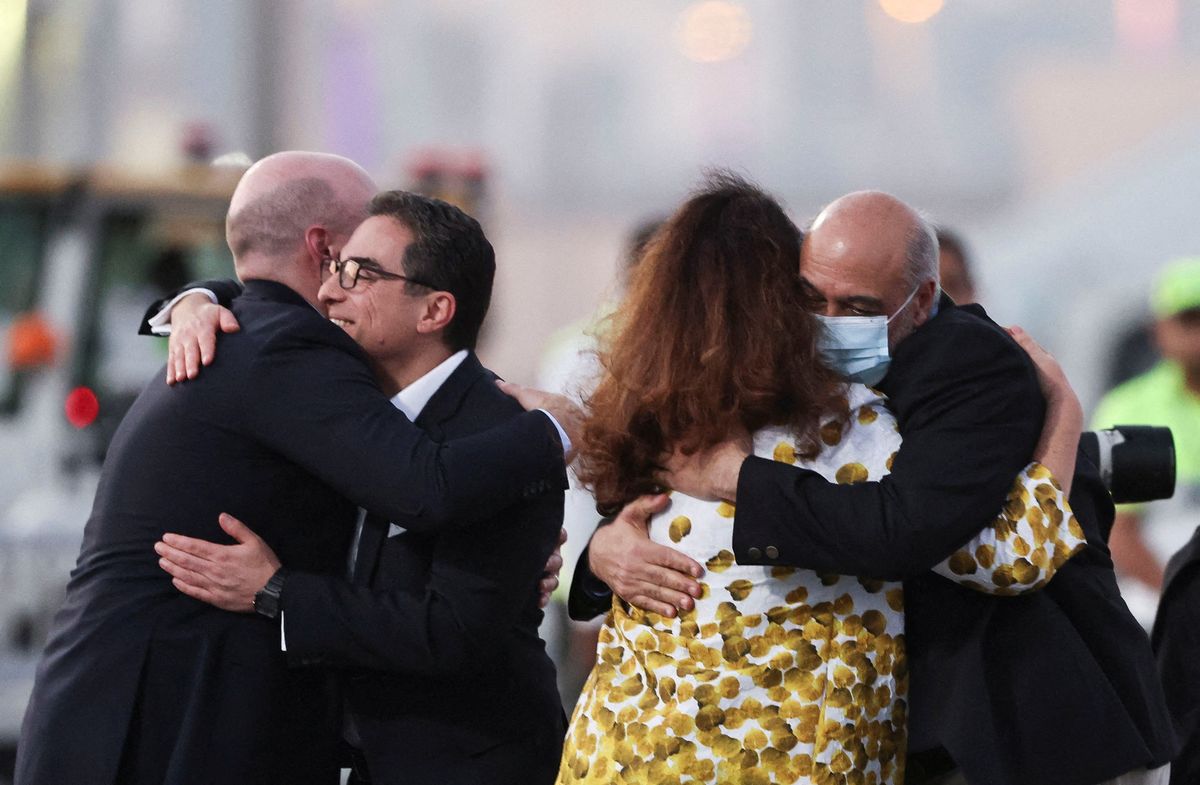The US and Iran on Monday traded prisoners in a high stakes swap that’s causing problems for President Biden at home.
After months of negotiations, the two foes traded 10 prisoners: five US citizens locked up in Iran, and five Iranians detained in the US, some of whom were charged but hadn’t been convicted.
As part of the deal, the Iranians also reaped almost $6 billion in frozen oil revenue held in South Korea. The US also placed fresh sanctions on former President Mahmoud Ahmadinejad, but some critics say it’s a distraction as he has no power over Iranian politics.
While some claim this deal suggests a thaw in US-Iran relations, it comes just days after the EU and UK announced the extension of UN sanctions that were slated to be eased under a previous agreement, citing Iran’s efforts to continue to enhance its nuclear program “beyond all credible civilian justification.”
Indeed, for Biden, it’s proving to be a very hard sell at home, with Republicans – and some Democrats – saying that he gave the Islamic Republic too much for too little. Both Biden and Iran's President Ebrahim Raisi will speak at the UN General Assembly on Tuesday, which will reveal more about where things stand.


















